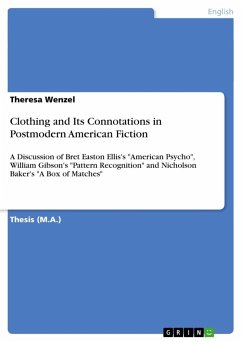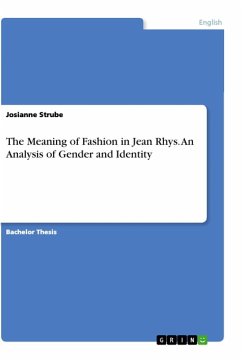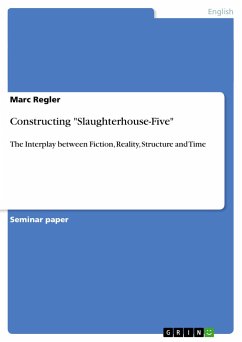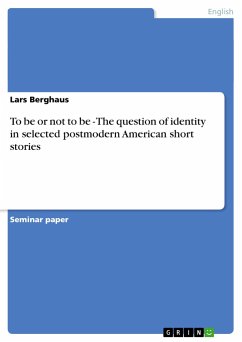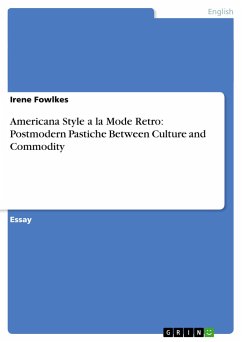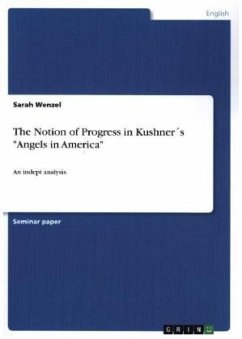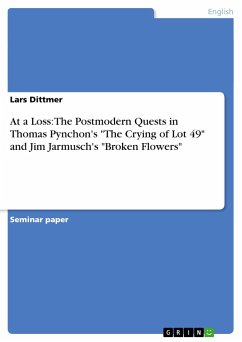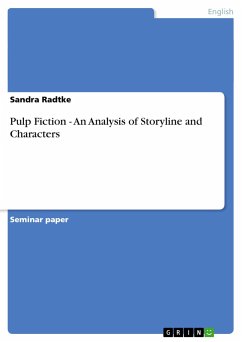Thesis (M.A.) from the year 2007 in the subject American Studies - Literature, grade: 1,0, University of Göttingen, language: English, abstract: Clothes, as Diana Crane establishes in her book Fashion and Its Social Agendas, "are a major tool in the construction of identity, offering a wide range of choices for the expression of lifestyles or subcultural identities" (171). However: "Social scientists have not articulated a definitive interpretation of how a person constructs social identity in contemporary society" (Crane 2). This might be one of the reasons why clothing has found its way into fiction, contributing to the characterization of protagonists and fictional world alike. The versatility of postmodern texts makes the analysis of clothing in connection with the process of constructing identities especially rewarding. The term postmodernism is hard to define. In the preface to his book The Illusions of Postmodernism Terry Eagleton makes a distinction between postmodernism and postmodernity:The word postmodernism generally refers to a form of contemporary culture, whereas the term postmodernity alludes to a specific historical period. Postmodernity is a style of thought which is suspicious of classical notions of truth, reason, identity and objectivity, of the idea of universal progress or emancipation, of single frameworks, grand narratives or ultimate grounds of explanation. (vii)Postmodernism, then, reflects these notions in what Eagleton calls "a depthless, decentred, ungrounded, self-reflexive, playful, derivative, eclectic, pluralistic art which blurs the boundaries between 'high' and 'popular' culture, as well as between art and everyday experience" (vii). Although his definition is not in favor of postmodernism, it does indicate how diverse subject-matter as well as style in postmodern texts can be. In other words, "anything goes" (Mayer 543).
Hinweis: Dieser Artikel kann nur an eine deutsche Lieferadresse ausgeliefert werden.
Hinweis: Dieser Artikel kann nur an eine deutsche Lieferadresse ausgeliefert werden.

